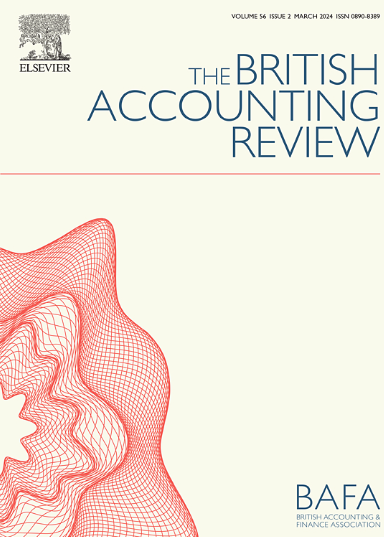遏制近视研发行为:私人会议如何发挥渠道作用
IF 9.4
3区 管理学
Q1 BUSINESS, FINANCE
引用次数: 0
摘要
本研究探讨了投资者与经理人之间的私下会谈是否可以作为一种潜在渠道,用于发现和抑制企业在面对盈利压力时的近视研发行为。为此,我们利用了一个独特的企业实地考察数据集,这是私人会议的一种特殊形式。我们的研究结果表明,当企业接待更多机构投资者的实地考察时,盈利压力下企业的近视研发行为会明显降低。为了进一步揭示其内在机制,我们进行了横截面分析,发现当企业更需要机构投资者的监督时,即信息环境薄弱、产品市场竞争程度低时,实地考察的约束效应会更大。此外,当实地考察中提出更多有关研发的问题时,当实地考察涉及不止一个机构投资者时,当实地考察发生在财政年度的早期时,这种监督效应会更强。主要研究结果对其他模型规格、估计方法和内生性问题都是稳健的。总之,我们的证据表明,实地考察不仅能减少信息不对称,还能起到重要的监督作用。本文章由计算机程序翻译,如有差异,请以英文原文为准。
Curbing myopic R&D behavior: How private meetings serve as a channel
This study considers whether investor-manager private meetings serve as a potential channel to detect and restrain corporate myopic R&D behavior in firms subject to earnings pressure. To do so, we exploit a unique dataset of corporate site visits, a particular form of private meetings. Our results indicate that the myopic R&D behavior of firms under earnings pressure is significantly lower when the firm hosts more institutional investors’ site visits. To further tease out the underlying mechanisms, we conduct cross-sectional analyses and find that the constraining effect of site visits is greater when there is more need for monitoring by institutional investors, i.e., when the information environment is weak and product market competition is low. Further, this monitoring effect is stronger when more questions are asked about R&D during the site visit, when the site visit involves more than one institutional investor, and when the site visit occurs earlier in the fiscal year. The main findings are robust to alternative model specifications, estimation approaches, and endogeneity issues. Overall, our evidence suggests that site visits cannot only reduce information asymmetry, but they have an important monitoring role as well.
求助全文
通过发布文献求助,成功后即可免费获取论文全文。
去求助
来源期刊

British Accounting Review
BUSINESS, FINANCE-
CiteScore
8.60
自引率
3.90%
发文量
39
审稿时长
76 days
期刊介绍:
The British Accounting Review*is pleased to publish original scholarly papers across the whole spectrum of accounting and finance. The journal is eclectic and pluralistic and contributions are welcomed across a wide range of research methodologies (e.g. analytical, archival, experimental, survey and qualitative case methods) and topics (e.g. financial accounting, management accounting, finance and financial management, auditing, public sector accounting, social and environmental accounting; accounting education and accounting history), evidence from UK and non-UK sources are equally acceptable.
 求助内容:
求助内容: 应助结果提醒方式:
应助结果提醒方式:


